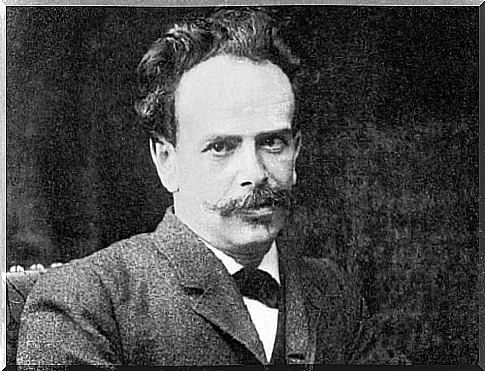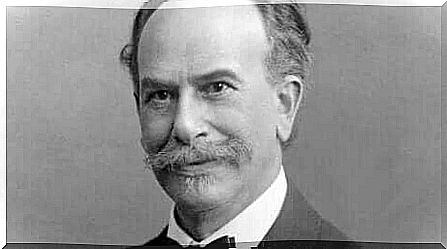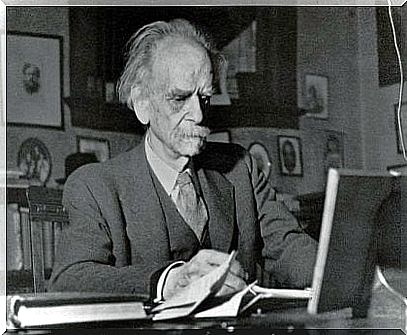Franz Boas, Father Of Modern Anthropology

Franz Boas (1858-1942) was an anthropologist originally from Germany. In 1888 he founded the first university department of anthropology in North America, specifically at the University of Clark. He took a more scientific approach to anthropology through complex field studies.
In this article we will deepen the circumstances that led Franz Boas to promote this new and extended scientific discipline; we will also analyze the social and personal context that led the scientist to throw himself into the field of human science.
His discovery of anthropology
Like many anthropologists of the time, Boas was born and educated in Germany. He began his training at the age of 20 studying physics and mathematics, he obtained his doctorate in geography in 1881. His thesis was entitled: Contributions to the understanding of the color of water.
In 1883 he joined an expedition to the Arctic to study the color of the waters; he stayed there for a whole year alongside Eskimos and whalers. Here he discovered ethnography, the method of direct observation for studying social phenomena and the importance of context.
His close relationship with the Eskimos in the Arctic gave him an interest in anthropology. He concentrated above all on study in the field, in every sphere: linguistic, social and cultural. This immediately led him to understand how language and culture play a more important role in society than natural conditions.
At the end of the expedition he returned to Berlin, and then returned after years to North America where he was assigned a professorship at the University of Clark. In 1889 he became a professor at Columbia University, a post he held throughout his life. He was also curator of the ethnology section in the American Museum of Natural History.

Main contributions of Franz Boas to anthropology
Franz Boas’s contribution in anthropology is vast and difficult to summarize. He undertook to have anthropology accepted as a science as a professor, researcher, administrator and founder of institutions.
He wrote an immense amount of books and scientific articles, touching all fields of anthropology. With his publications he dealt with various topics such as language, ethnological theory, anthropometry, folklore, racial problems, civil rights and many others.
Boas was at the center of important events that marked a before and after in North American anthropology. He was involved in the modernization of the journal American Anthropologist (1889) and the founding of the American Anthropologist Association (1900) and the American Folk-lore Society (1888), as well as in the rejuvenation of the American Ethnology Society (1900).
In 1910 he actively contributed to the founding of the International School of American Archeology and Ethnology in Mexico, holding the role of institute director from 1911 to 1912.
One of Franz Boas’ most important theoretical contributions to anthropology was a new approach to the study of culture, which abandoned the prevailing thought of the era of linear social evolution.
Boas proposed a relativistic approach to analyzing cultural differences. This led anthropologists to focus more on the particularities of each society rather than comparing cultures through conjectural generalizations.
The generation of anthropologists educated by Boas
Together with his disciples, Franz Boas laid the foundations of a professional and university anthropology, moving it away from an amateurish approach. This was possible by confirming ethnographic research as a field experience.
Among his most famous disciples were Ruth Benedict, Margaret Mead, Alfred Kroeber, Robert Lewie, Edward Sapir, among others. The group set out to spread anthropology throughout North America. Kroeber and Lewie worked at Berkeley University, Sapir in Chicago, while Mead and Benedict remained at Columbia.
Franz Boas’ reflections on the race

In 1911 Boas published the book Primitive Man . The text can be considered one of the most important of his prolific scientific production. The scholar endeavors to clarify the relationships between culture and race, concluding that there is no direct and effective relationship between the two.
It therefore denies the existence of inferior or superior races. We cannot therefore speak of primitive or civilized man starting from the phenotype that characterizes a society. Boas maintained and defended this theoretical position throughout his life.
In 1931 he published an article in German reaffirming that culture had nothing to do with race, an ideology defended instead by ultra nationalists. The publication came out a year before Hitler’s rise in Germany, and was banned and publicly burned in Kiel.









